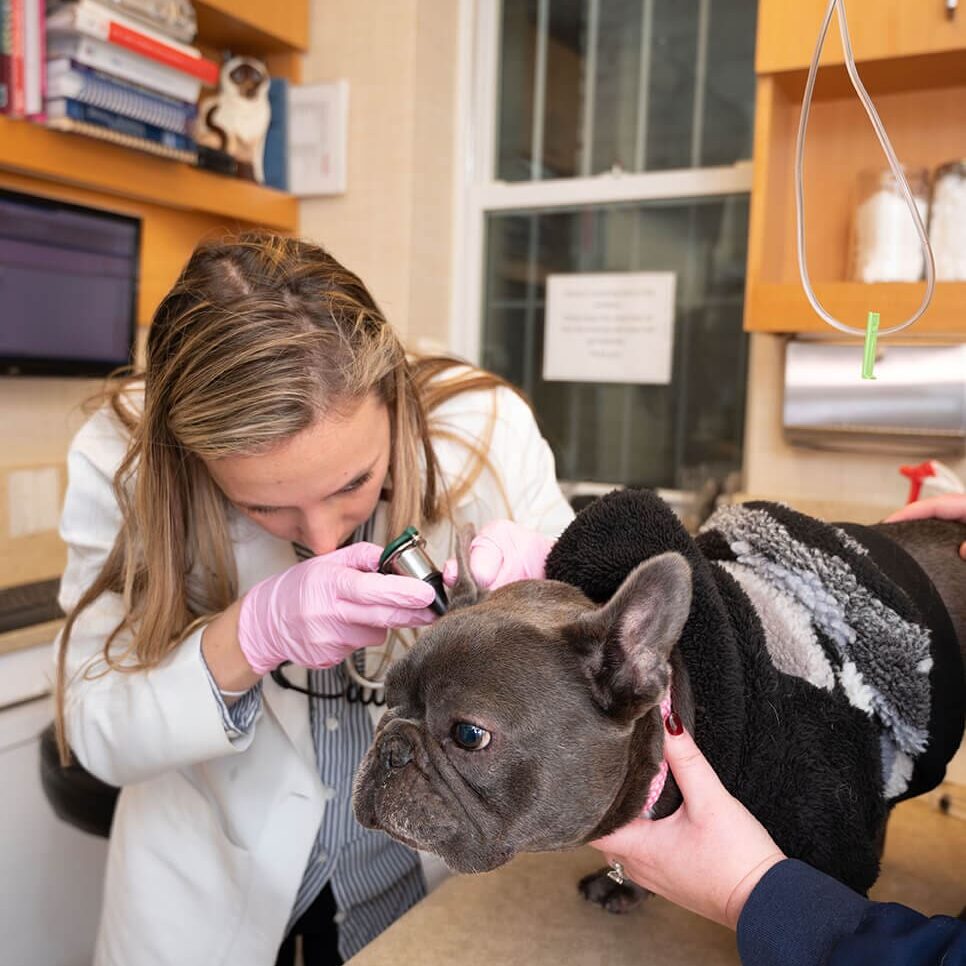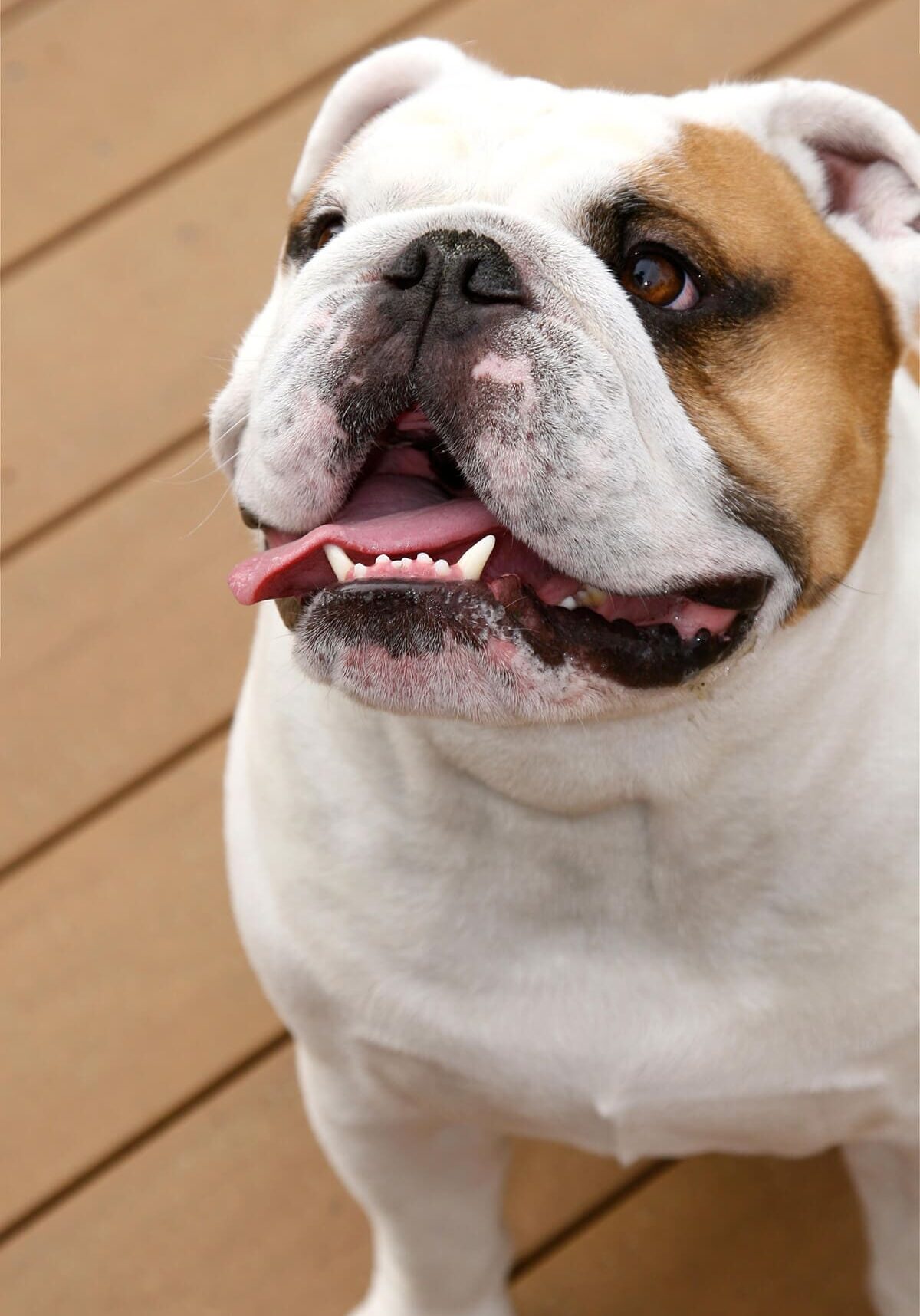Heart of Chelsea Veterinary Group provides individualized care for your pet. A key part of that care is taking your pet’s breed into consideration. Some popular dog breeds are brachycephalic—or “flat-faced,” or “smoosh-faced.” You have probably seen these breeds yourself! Bulldogs, Pugs, Boxers, Shih Tzus, Boston Terriers, and Pekingese are all brachycephalic dog breeds. Some cat breeds also have this trait, including Persians and Burmese cats.
Our veterinarians have a high level of experience in treating brachycephalic breeds. This expertise influences how we approach every aspect of your pet’s health and wellbeing.
We take into consideration a variety of unique health issues when evaluating your pet:


Mobility Issues
On-site radiographs are available for evaluating hip, joint, or spinal-related pain and other issues. We offer a variety of pain management medications and therapies to improve your pet’s quality of life. These remedies can help manage common ailments such as Intervertebral Disc Disease (IVDD). We also have state-of-the-art laser therapy and acupuncture treatments available to help maintain comfort for patients with chronic pain.
Dental Disease
Heart of Chelsea Veterinary Group provides Comprehensive Oral Health Assessment and Treatment (COHAT) to ensure the health of your pet’s teeth and gums. We evaluate your pet’s mouth at every examination appointment, and our hospitals are equipped with the facilities necessary to perform thorough dental cleanings and extractions.
We often see crowded dentition in brachycephalic animals, which can increase their risk for periodontal disease. Routine oral exams and treatment can prevent this.
Special Surgery Considerations
To ensure your pet’s safety before surgery, they will be pre-oxygenated for 3 minutes prior to intubation. This gives us time to make sure they have optimal oxygen saturation. We follow strict protocols to extubate pets based on breed and risk factors.
Our specialized anesthesia protocols help to minimize the risk of regurgitation during surgery and prevent aspiration pneumonia.
